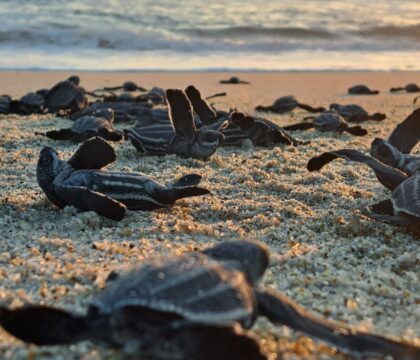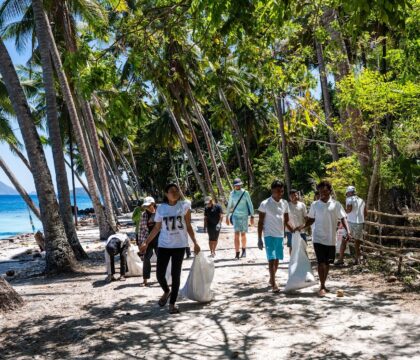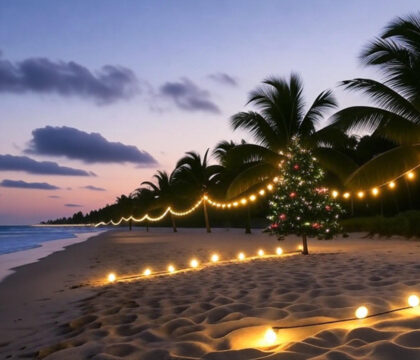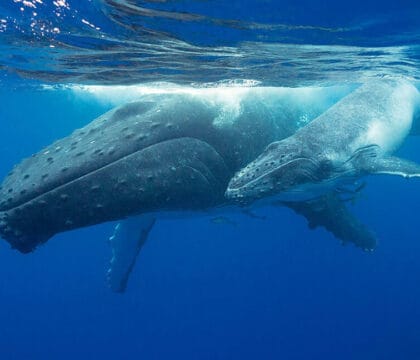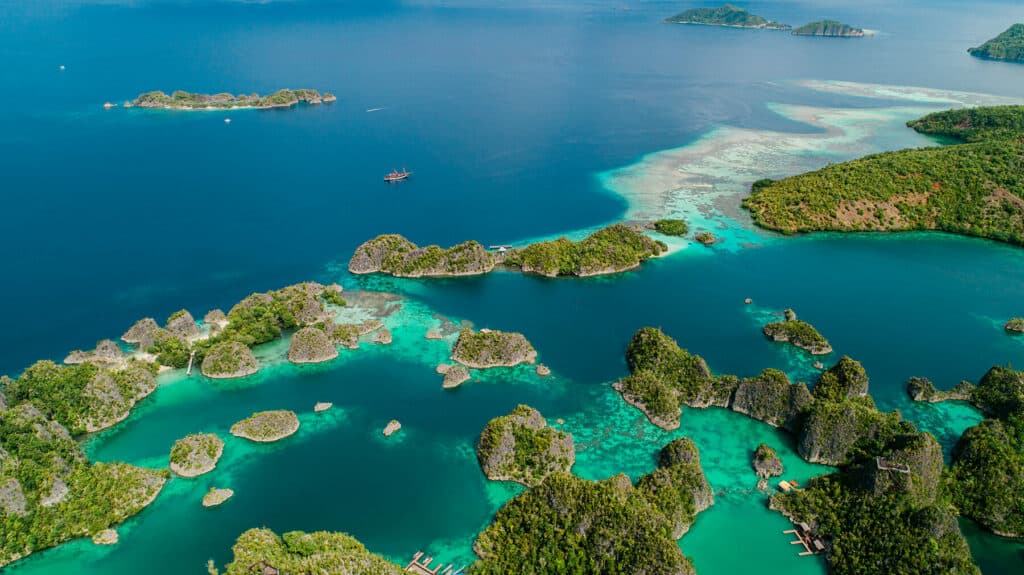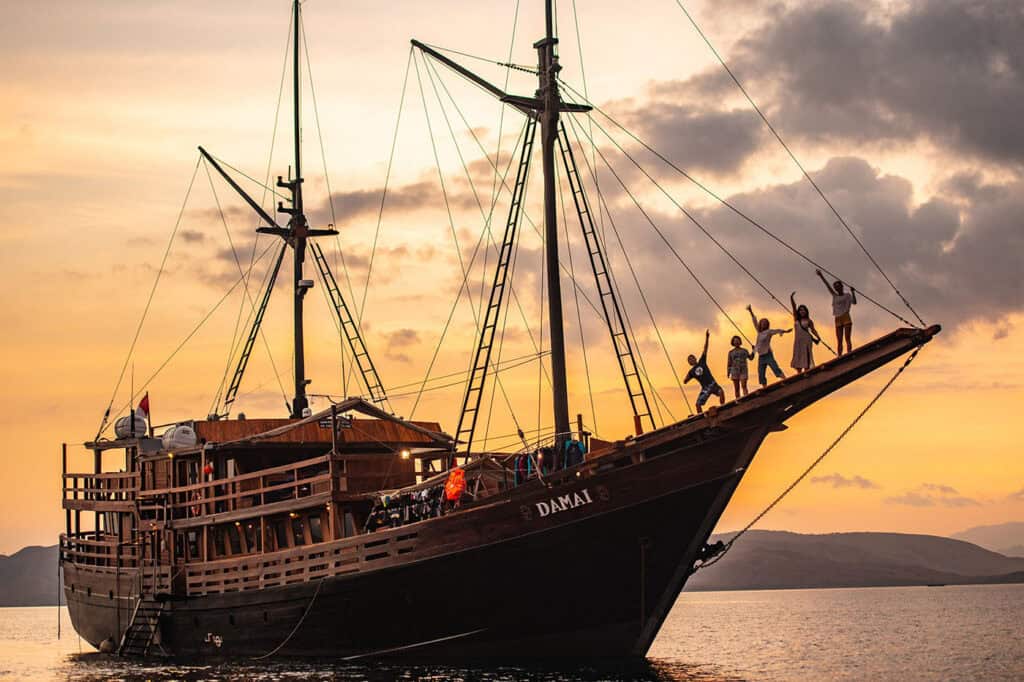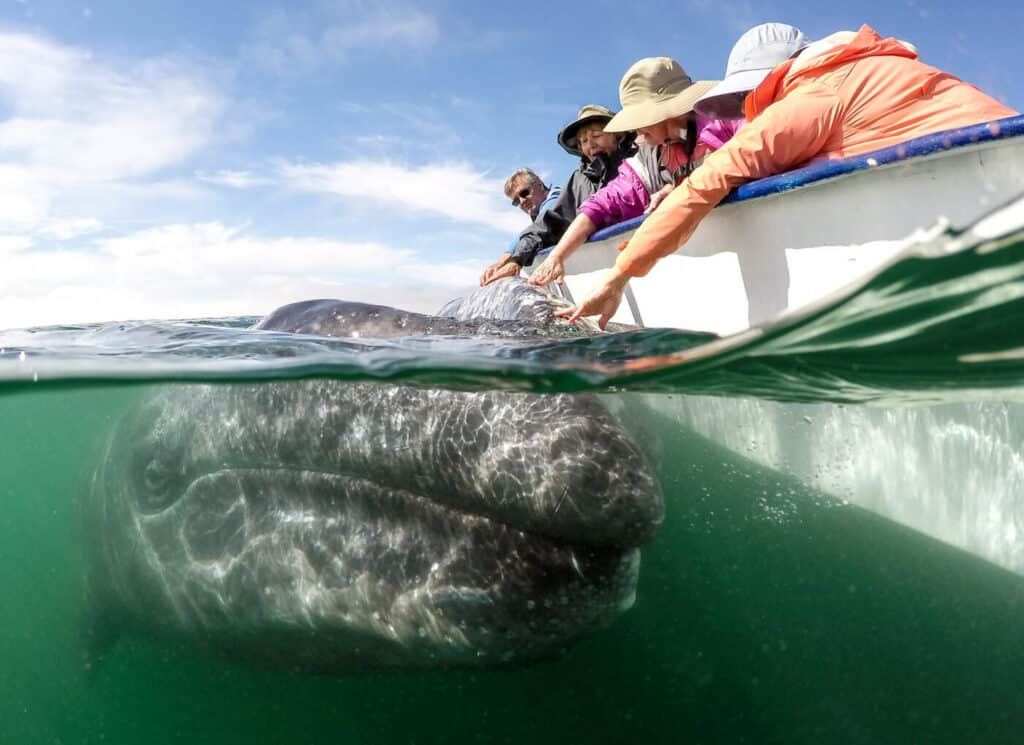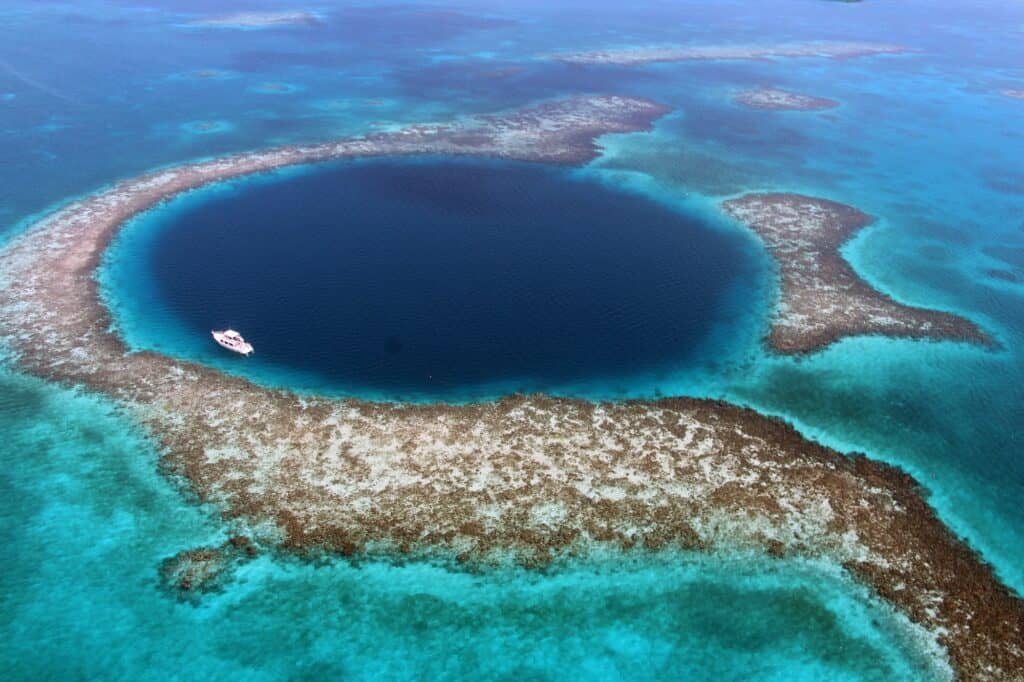August 4, 2014 • News Announcements, Program Updates
The last thing you ever want to hear when working on a community development project is that it has angered a demon.
Jeopardizing the spiritual-cultural health of the local community was not what we were trying to do with our aquaculture program, or even something we thought possible. Apparently, by digging a pond for tilapia we had inadvertently disturbed a demon. Even Sahila Esterbino, one of Armila’s five leaders and head of the tilapia program, had not seen this problem coming.
It was Sahila Esterbino who approached Morrison Mast and I during our first visit to Armila and asked for help fundraising for the project. He explained that in the summer months, the waves grew too high for fishing and the community ate canned sardines and SPAM rather than fresh caught fish. The federal agency, ARAP, would provide more than $12,000 in technical support and supplies for tilapia aquaculture so the community only needed funds for shovels, picks, and piping. Esterbino wanted someone who could “knock on doors on their behalf,” not something easily done from an isolated community with a single phone.
What Does Tilapia Have To Do With Turtles?
The connection between saving sea turtles and growing tilapia was easy for us to see: when your only option is expensive imported SPAM, turtle eggs start to look pretty tasty regardless of the local taboo. Because a reliable source of protein would help keep sea turtles and their eggs off of the local menu, we agreed to help. We reached out to friends and family through an Indiegogo campaign and raised enough funds for the tilapia program as well as for sea turtle monitoring supplies and the production of a CD of indigenous music (soon to be acquired by Smithsonian Folkways). It was touching to be on the fundraising side of a donation campaign, seeing people’s generosity at work.
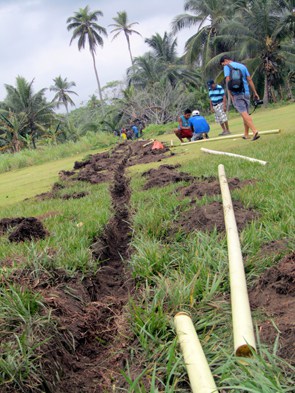
Laying pipes for the tilapia ponds. © Amanda Gibson
We happily sent over the funds in February 2013. When we arrived on the ground in October 2013, only one side of the tank had been excavated and the amount of weeds showed that it had long been abandoned. They had been so committed to the project before, and had all the money and supplies they needed. What had happened?
Then we heard rumors that someone had seen a demon in the tilapia tank. Apparently, the allegation had created huge debate within the community over whether the project was wise. In the face such cultural challenge we had all but given the project up for lost when Sahila Fidel, the highest authority in the community, sat us down to talk:
“For breakfast this morning instead of a nice, fresh fish, I opened a can of sardines imported from Colombia. My whole community is eating straight from cans and that’s not right. “We’ll finish the tilapia tank,” he said.
Fidel’s leadership slowly diminished fears and guided community members to a consensus. At a roundtable between more than twenty community leaders as well as visiting ARAP representatives, the tilapia commission received an official ‘go’ to continue the tilapia project.
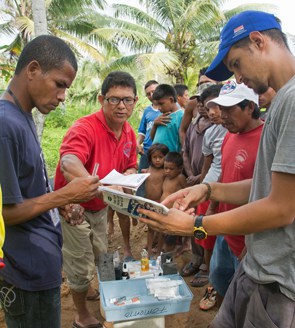
ARAP technician Alexander Cobas tests the tank water and gives instructions on tank maintenance. © Amanda Gibson
For weeks, we worked in the heat of the tropical afternoon digging a tank for tilapia, with locals pulling a double shift after working in their farms. Every step was a challenge: even to buy materials we had to wait for a rare day of calm seas, rent a boat, and travel to Colombia and back. Finally, the digging was done. ARAP’s tilapia technician shipped a supply of baby fish, which are growing rapidly. And with surplus funds we even funded the training of two additional local technicians (graduates of the local public schools) to maintain the program in the long term. I still look at our achievements with incredulity, thinking back on the number of times I thought the challenges were too great to overcome.
As we admired our handiwork the other week, Esterbino said to me, “And right here on the other side of the tank we should start a chicken farming project.”
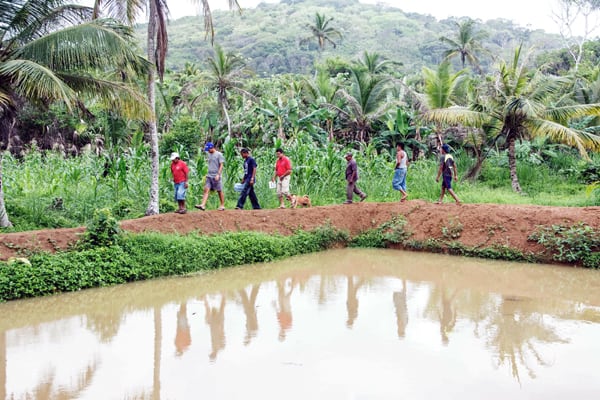
Inspecting the tilapia pond. © Amanda Gibson

